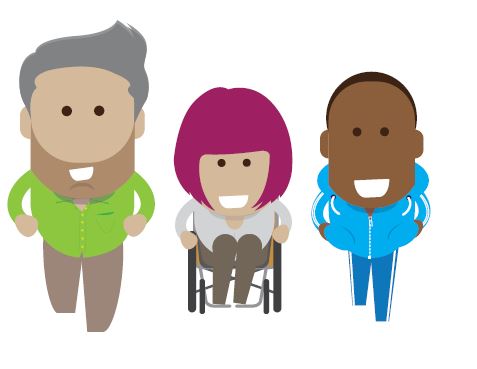Sheffield [HIDDEN]
On this page you will see information on Bassetlaw neurodevelopment assessments for young people including referrals, pathway details, who is involved and how long the process will take.
How can I get a referral?
Patients can be referred via a GP with support from school. Some behaviour management is available in schools prior to referral.
General Development Assessment (GDA)
After the school completes the above process, the child will be referred to the community paediatrician who will complete the General Development Assessment. More information on what to expect the GDA can be found here (insert link)
Inappropriate or incomplete referrals or those lacking evidence of pre-referral support and intervention, may be declined.
After completing the GDA, the paediatrician will decide which steps the child should take next.
Autism assessment
Part 1
The first part is taking a very detailed history from you, the parent or carer. This will cover information all the way from before your child was born to the present day. We will want to know about your child’s health, their development, and how they play. We will ask about yours and your family members health.
We will ask lots of questions about how your child interacts with others, how they communicate with you and others, their friendships and their interests.
You will have the chance to tell us about any concerns you have around specific behaviours, sleep, eating, anxiety, difficulties in nursery or school and any other worries you have.
Part 2
The second part is observing your child and gathering observations from different settings. This is done in different ways depending on the age of your child. Members of the assessment team will interact with your child during their assessment and carefully observe for their areas of strength and areas of difficulty. We gather information from other settings in different ways.
Preschool children may be observed in different clinic settings, during speech and language therapy groups, in nursery or at specific play sessions.
In older children we gather detailed information from staff who know them at nursery or school and can undertake additional observations in school if needed.
All this information is then discussed by the professionals undertaking your child’s assessment. A decision is made as to whether your child fits the criteria for a diagnosis of Autism Spectrum Disorder or if their difficulties are best described in a different way. We may sometimes need to gather additional information before coming to a conclusion.
ADHD Assessment
Initial assessment interview is followed by information collection from home and school which may include a school observation by a specialist Nurse.
We also arrange access to group and individual behaviour management sessions covering ADHD, parenting skills for a child with attentional problems and anger management.
Follow up clinics discuss whether or not the child or young person has ADHD and other difficulties and how these can be managed at home and school. Evidence-based management also includes the use of medication in some cases.
Support and Advice
This section is designed to help you understand what support you can access whilst you are waiting for the assessment. In many cases this is exactly the same as the support you will be offered after diagnosis. Organisations across Sheffield are working closely together to ensure all children and families get the support they need.
Health Visiting Team
Your Health Visitor contact details are in your child’s Red Book or you can call 0114 3053224. Health Visiting is part of Sheffield Children’s 0-19 service.
Sheffield Parent Hub
Sheffield Parent Hub has a range of programmes specifically designed for parents and carers of children with additional needs. The groups are friendly and welcoming. You will have the opportunity to meet other parents and carers and discuss experience and ideas.
Local Offer

The Local Offer is part of the Sheffield Directory. The Local Offer has lots of advice, information and services. This supports children and young people with special educational needs or disabilities aged 0-25.
Small Talk
Small Talk is a parent/carer support group for parents/carers of pre-school children with speech, language and communication needs. Parent/carers meet to support one another while the children can benefit from speech and language therapy offered by speech and language therapists and students who are training to be speech and language therapists.
CAMHS
Our Child and Adolescent Mental Health Service (CAMHS) treats children and young people with a range of difficulties that are seriously impacting on their mental health and emotional wellbeing.
Patients can be seen and helped in a number of ways from consultations through to staying at our state-of-the-art inpatient facilities. We also have a 24 hour, seven-day-a-week psychiatric on-call service.




